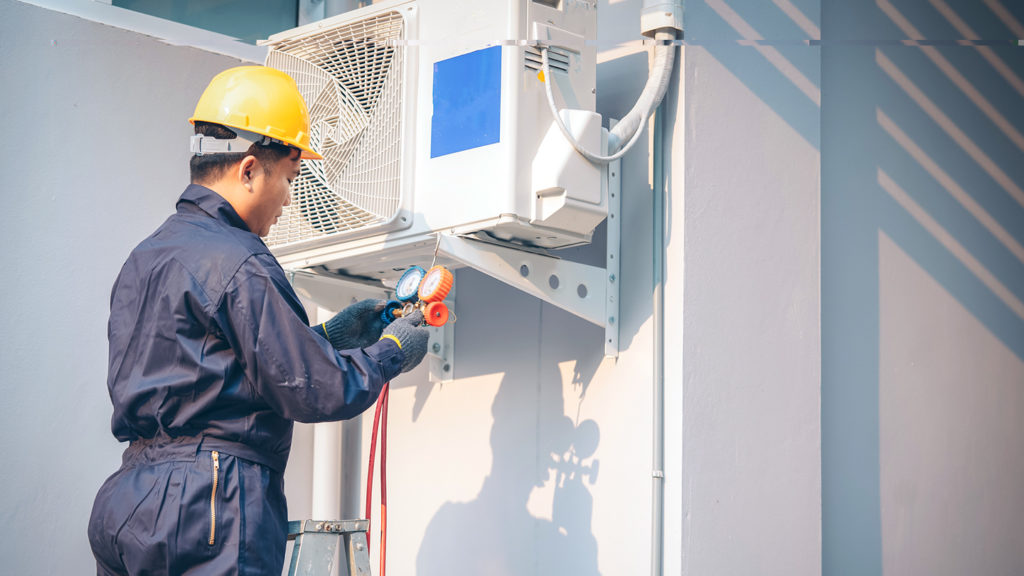
Building HVAC systems weren’t necessarily designed to help protect against infectious diseases, but senior living providers can adapt those systems to provide increased protections to occupants, according to a U.S. Environmental Protection Agency expert.
Viruses, including COVID-19, travel on particles, said Vito Ilacqua, Ph.D., a scientist with the EPA’s Indoor Environments Division who spoke Wednesday during a LeadingAge membership call. Filtering out those airborne particles can help reduce the risk of infectious agents in the air.
Most standard filters in HVAC systems, however, were created to protect equipment — not people — by straining out only the largest particles, Ilacqua said.
“These systems, even those that provide ventilation, were never really designed to help with infectious disease,” he said. “They were just intended to provide comfort and save energy.” By upgrading to a better filter that sifts out smaller particles and viruses, communities can better protect residents and staff members from contagions, Ilacqua said.
Adapting systems to better filter smaller particles can be expensive, he said, but doing so increases protections for community occupants.
“It can get overwhelming. All of a sudden people have to learn all about their HVAC systems that they didn’t want to know,” Ilacqua said. “And there are a lot of new products on the market, and their claims are sometimes difficult to evaluate.”
A good starting point, he said, is the EPA’s indoor air quality page, which provides several resources and includes a coronavirus section, which also has evaluations of newer products and addresses some product marketing claims.
In addition, Ilacqua said, providers can check out the federal Clean Air and Buildings Challenge, which walks building owners through steps to make a plan to improve ventilation and filtration. ASHRAE also provides information on specific building types.
Earn CE learning about indoor environments
Attendees of a webinar at the July 19 McKnight’s Online Forum can earn a continuing education credit while learning how indoor environmental enhancements can help reduce stress and promote overall well-being among senior living residents and staff members.
“Indoor environmental quality and senior health” will begin at 1:30 p.m. ET and will be moderated by McKnight’s Senior Living Editor Lois A. Bowers.
Panelists will include Rick Matros, president and CEO of Sabra Health Care REIT; Kevin A. Mazurek, Ph.D., a research scientist at the Well Living Lab and an adjunct assistant professor in the Mayo Clinic Department of Physiology and Biomedical Engineering; and Peter Scialla, president and chief operating officer of Delos.
Learn more and register at https://www.mcknights.com/071922onlineforum.


